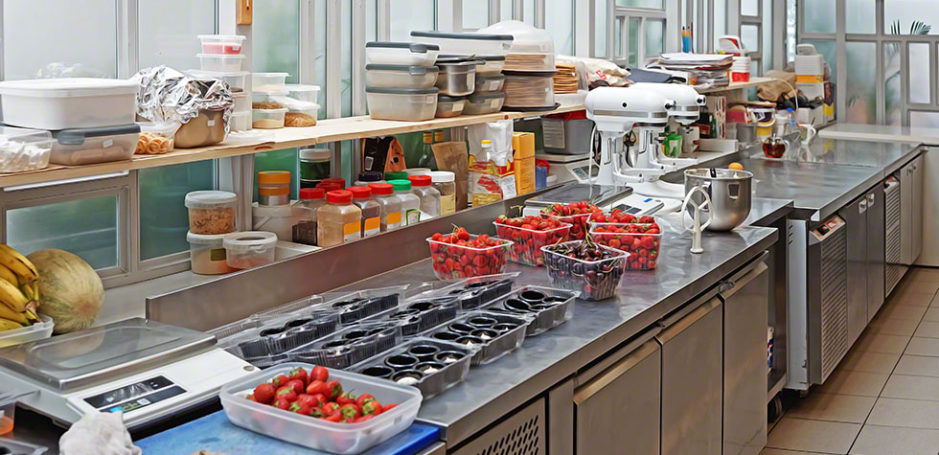In our modern world, appliances are essential to our daily lives. From refrigerators that keep our food fresh to washing machines that simplify laundry, these devices play a significant role in making our routines more efficient. However, the convenience of using appliances often overshadows their environmental impact, particularly when it comes to disposal and repair. Understanding these impacts is crucial for making informed decisions about how we treat our appliances throughout their lifespan, including the importance of appliance repair as a more sustainable alternative to replacement.
The Lifecycle of Appliances
To grasp the environmental implications of appliance disposal and repair, it’s important to consider the entire lifecycle of an appliance. This lifecycle begins with the extraction of raw materials needed for production. Metals, plastics, and other materials are mined, refined, and transported, all of which contribute to greenhouse gas emissions and environmental degradation. The manufacturing process itself can be energy-intensive, further contributing to pollution and resource depletion.
Once appliances are in our homes, they require energy to operate. The energy sources used can significantly affect their environmental footprint. Appliances that run on fossil fuels contribute to carbon emissions, while those that use renewable energy sources have a lower impact. When appliances reach the end of their useful life, the decisions made regarding disposal can either exacerbate or mitigate their environmental effects.
The Issue of Appliance Disposal
When appliances are no longer functional, many people opt to dispose of them. Unfortunately, this is often done without considering the environmental consequences. Most appliances contain materials that can be harmful to the environment if not disposed of properly. For example, refrigerators and air conditioners contain refrigerants that can contribute to ozone depletion if released into the atmosphere.
Landfills are another concern. When appliances are dumped in landfills, they can take up valuable space and release harmful substances into the soil and groundwater. Heavy metals, such as lead and mercury, found in appliances can leach into the environment, posing risks to both wildlife and human health. The sheer volume of discarded appliances is staggering, contributing to a growing waste problem.
The Benefits of Repair
Repairing appliances instead of discarding them is one of the most effective ways to reduce their environmental impact. Repairing an appliance extends its life, which means fewer resources are needed for manufacturing new products. It also reduces the amount of waste sent to landfills. In a throwaway culture, where convenience often takes precedence over sustainability, embracing repair can be a powerful statement.
Many appliances can be repaired with relative ease, especially if you have the right tools and resources. Even small fixes, like replacing a worn-out seal on a refrigerator or fixing a leaky dishwasher, can significantly extend the life of the appliance. Moreover, the rise of online resources and communities dedicated to DIY repairs has made it easier than ever to learn how to fix common issues.
Economic and Environmental Considerations
From an economic perspective, repairing appliances can save consumers money in the long run. The cost of a new appliance can be substantial, while repair costs are often significantly lower. This is especially true for common issues, such as refrigerator repair Northern VA, which can often be resolved at a fraction of the price of a new unit. Additionally, many repair services offer warranties, ensuring that if the same issue arises shortly after a repair, it can be addressed without further cost to the consumer..
On the environmental side, the benefits of repair extend beyond just reducing waste. Manufacturing new appliances consumes vast amounts of energy and raw materials. By repairing existing appliances, we can reduce the demand for new products, which in turn lessens the environmental strain associated with production. Every repaired appliance represents fewer resources extracted from the Earth, less energy consumed, and reduced emissions from manufacturing processes.
Recycling: An Alternative to Disposal
In cases where appliances are beyond repair, recycling can be a responsible alternative to disposal. Many components of appliances can be recycled and reused in new products. Metals, plastics, and glass can all be recovered and processed into new materials, reducing the need for virgin resources.
Many communities offer recycling programs specifically for appliances. These programs ensure that harmful materials are handled safely and that valuable materials are recovered. Participating in such programs can be a great way to mitigate the environmental impact of appliance disposal. However, it’s important to check local regulations and facilities to ensure that appliances are being recycled properly.
The Role of Manufacturers
Manufacturers also play a critical role in the environmental impact of appliances. Many companies are beginning to recognize the importance of sustainability and are taking steps to reduce their ecological footprint. This includes designing appliances that are easier to repair and recycle. For example, some brands now provide spare parts for older models, making it simpler for consumers to fix rather than replace their appliances.
Additionally, manufacturers can focus on using more sustainable materials and energy-efficient technologies in their kitchen appliances. By doing so, they can contribute to a more circular economy where appliances are designed with their entire lifecycle in mind. This shift in mindset can lead to lasting changes in the way we think about appliance ownership and disposal.
Educating Consumers
As consumers, we also have a responsibility to educate ourselves about the environmental impacts of our choices. Understanding the importance of repair and recycling can empower us to make more sustainable decisions. It can be easy to default to replacing a broken appliance, but taking a moment to consider repair options can lead to more environmentally friendly outcomes.
Participating in community workshops, engaging with online forums, and reading up on appliance maintenance can all enhance our knowledge. The more we learn about our appliances and their environmental impact, the better equipped we are to make informed decisions.
Conclusion
The environmental impact of appliance disposal and repair is a complex issue that affects us all. From the extraction of raw materials to the energy consumed during operation, each phase of an appliance’s lifecycle has its own environmental footprint. By understanding this impact, we can make better choices regarding our appliances.
Repairing rather than discarding appliances is a crucial step in reducing waste and conserving resources. Recycling can further mitigate the effects of disposal when repair is not an option. Manufacturers also have a role to play in designing more sustainable products. Ultimately, it comes down to consumer education and engagement.
By making informed decisions and advocating for a more sustainable approach to appliance ownership, we can help protect our planet and ensure a cleaner, healthier environment for future generations. This includes not only residential appliances but also commercial appliances, where opting for commercial appliance repair Alexandria can significantly reduce waste and extend the life of essential equipment. Every small action counts, and together, we can make a difference.



